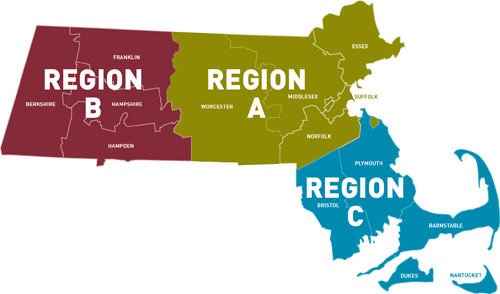
What You Need To Know
- On November 22, 2011, Governor Deval Patrick signed the Expanded Gaming Act into law.
- Through the establishment of new gaming facilities, the Expanded Gaming Act will create new jobs, generate new revenue for the Commonwealth, and contribute to the economic growth of the local economy.
- The Expanded Gaming Act protects communities from all potential social and economic impacts by a transparent and competitive bidding process of gaming licenses.
Expanded Gaming in the Commonwealth
On November 22, 2011, Governor Deval Patrick signed Chapter 194 “An Act Establishing Expanded Gaming in the Commonwealth,” legislation designed to provide significant benefits to the Commonwealth by advancing job creation and economic development.
The arrival of expanded gaming is expected to create thousands of jobs for Massachusetts residents in the areas of construction, hospitality and tourism while also generating $300- $500 million in new revenue for the Commonwealth.
The Gaming Act allows for up to three destination resort casinos located in three geographically diverse regions across the state and single slots facility competitively awarded for one location statewide. The legislation divides the state into three regions to include:
-
Region A
Suffolk, Middlesex, Essex, Norfolk and Worcester counties
-
Region B
Hampshire, Hampden, Franklin and Berkshire counties
-
Region C
Bristol, Plymouth, Nantucket, Dukes and Barnstable counties
The licensing fee for each resort casino is a minimum of $85 million and requires a capital investment, to include a hotel facility, of at least $500 million. The Commonwealth receives 25% of gross gaming revenues. The slots facility, which holds up to 1,250 slot machines, has a $25 million license fee, and a minimum capital investment of $125 million. The slots facility is taxed at 40% of its gross gaming revenue. On February 28, 2014, the Commission awarded the slots license to Penn National Gaming.
The legislation includes a number of key principles to ensure the successful implementation of expanded gaming. The principles include: a transparent and competitive bidding process, maximum long-term value to the Commonwealth, protection for host and surrounding communities, mitigation for social impacts and costs and ensuring the nation’s best and most rigorous public safety, regulatory and enforcement mechanisms.
The statute specifically identifies a variety of uses for the new revenue that will be generated for the Commonwealth by the implementation of expanded gaming. These include payments for local aid, health care payment reform initiatives, education and community colleges, transportation infrastructure, manufacturing initiatives, debt reduction and tourism. In addition, the legislation provides for a myriad of mitigation efforts, which includes public health and addiction services and community and cultural mitigation. Gaming revenues will also support a newly established Race Horse Development Fund, to be paid to horsemen, trainers, riders and other stable workers and to breeding programs that support farms and other agri-business in the Commonwealth.
The legislation also called for the creation of a five-member independent body, the Massachusetts Gaming Commission, to oversee the implementation and licensing process. The costs for the operation of the state’s gaming commission are paid solely by the gaming industry and not by Massachusetts tax dollars.
